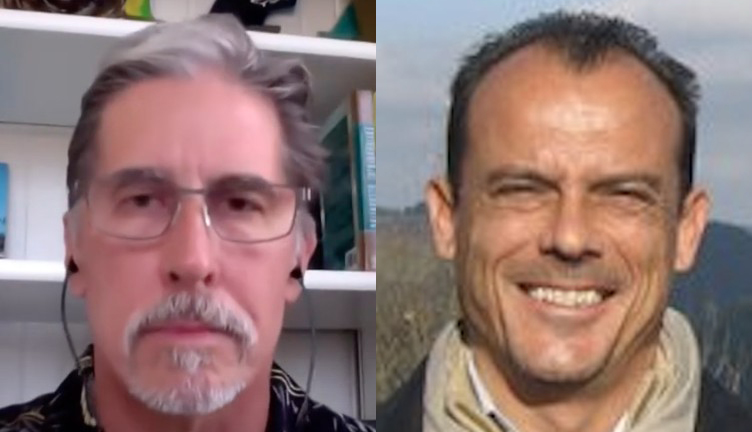By R. King Burch and Enrique Villamor
Twenty years ago, few universities acknowledged any connection between environmental systems and the financial system. There was a traditional separation of environmental and financial academic programs.
Now, a new field of environmental finance is emerging that will require a talented and cross-trained workforce.
The subject of finance is integral to understanding and achieving environmental sustainability. This includes the origins, uses and flows of money and credit, and how they drive environmental impacts or react to environmental influences.

Like the lyrics from a song in 1972’s award-winning film “Cabaret” say, “Money makes the world go around.” As society seeks ways to understand and manage environmental challenges, money is the fuel that turns human intentions into human actions.
In practical terms, these actions are generated through expenditures for goods and services. They often involve the natural world by inducing, or responding to, changes in environmental conditions. Try, for example, to imagine how disaster recovery could proceed without such expenditures.
Yet it is only during the last half-decade or so that universities in the U.S. have started offering sustainability programs and courses that incorporate finance. This is welcome progress, but these offerings often limit their focus to methods of financing for a particular industry or type of project such as renewable energy or addressing a single environmental parameter such as carbon.
And while some may provide a general overview of why so-called “sustainable finance” is desirable, or how it can enhance investment returns, it is rare to find a focus on foundational interconnections between natural systems and finance, or to see substantial involvement of faculty from sciences as well as finance.
Financial engineering, also called financial mathematics, offers advantages in its holistic approach that demonstrates the kinship of fundamental theories and models that are shared by the financial and environmental science disciplines. It reveals how the methods of dealing with volatility and prediction in financial markets and environmental sciences have developed together, and reinforced and extended each other over the years.
This is particularly important in view of the transformations since 1970 that have given rise to Nobel-winning finance theory (i.e. options pricing and risk management), and the opening and growth of enormous financial derivatives markets. These methods have evolved into the use of environmental parameters, rather than market prices, as triggers for funding recovery from natural disasters. One example of this is called a catastrophe (“cat”) bond – a tradable security by which investors assume specified financial risks of events like hurricanes, floods, earthquakes, wildfires or even volcanic eruptions.

A related market for “weather derivatives” uses parameters such as precipitation, temperature or wind to hedge environment-linked financial risks of agricultural and energy production. Ecosystem conservation projects can also benefit from these financial engineering skills, such as by restructuring and guaranteeing repayment of an existing debt so that it frees up funding to create an ecological preserve. The largest of these so-called debt-for-nature-swaps was recently concluded for the Galapagos Islands.
Another versatile innovation is parametric insurance that uses environmental observations (for example, parameters such as wind speed measurements) to trigger payout funding that can be used for a variety of purposes – even the restoration of coral reefs.
All of these examples use environmental finance to help estimate the probability that a cash flow will be triggered.
Traditional financial engineers were often called “quants” in reference to their quantitative skills. Tomorrow’s financial engineers will be “green quants” whose mathematical know-how is augmented with environmental knowledge and applications that are vital for sustainability and resilience.
R. King Burch is a researcher and consultant with the Environmental Finance and Risk Management program at Florida International University. Enrique Villamor, PhD, is a professor of mathematics and director of research and education for the Environmental Finance and Risk Management program of the Institute of Environment at FIU.
Sign up for The Invading Sea newsletter by visiting here. To support The Invading Sea, click here to make a donation. If you are interested in submitting an opinion piece to The Invading Sea, email Editor Nathan Crabbe at ncrabbe@fau.edu.



